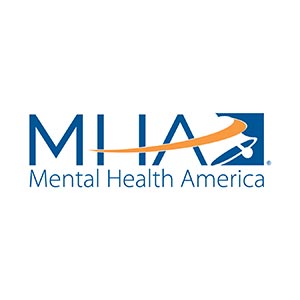Project Well
A Dive into depression and anxiety in middle tennessee
There are still lots of myths about mental illness that are widely believed—for instance,the idea that someone who is anxious or depressed enough to impact their school or jobperformance could justsnap out of itif they really wanted to. On the one hand, because people who are suffering often fail to understand their experience as mental illness—they do nots eek or receive the help they need. On the other hand, because families and communities surrounding those who are suffering often fail to recognize mental illness—they do not connect their loved ones to effective treatment options. This crisis of identification is a priority because without recognition of mental illness, progress toward other goals is not possible.
What is the Dilemma?
Tennessee ranks number third in the nation in reported symptoms of anxiety or depression—with more than 38.1% of the population reporting symptoms of anxiety or depression. The picture of mental health in the U.S. and in Tennessee is complex and multifaceted—but is it clear that people ages 18–39 are suffering in a particular way, and that mood and anxiety disorders are two of the most common mental health challenges Americans face.
Tennesseans reported symptoms of anxiety or depression
Americans aged 18-29 reported symptoms of anxiety or depression
Americans aged 30-39 reported symptoms of anxiety or depression
What Data was used?

Anxiety and Depression, Household Pulse Survey
Centers for Disease Control and Prevention
Let's take a look at the insights
How do we turn this into Action?
This report is the beginning, not the end. Data does not provide solutions. Instead, it starts important and provocative conversations that can clear pathways toward meaningful action. We hope this report sparks many fruitful conversations on mental illness in Middle Tennessee, and we are ready to help convene and facilitate conversations that lead to change.
Continue the conversation
One of the hardest things about mental health on an individual level is talking about it. One of the most important pathways to responding well to mental illness is talking about it. Because talking about mental illness is also hard at a community level, we want our snapshots of mental health – and the availability of a Mental Health Index for Middle Tennessee – to help start conversations. Raising awareness about mental health is one big conversation that continues – and responding well to mental illness begins with starting hundreds of other conversations with people who want to see change.
We Want to Talk with you
If you are aware of or have access to information that can improve our Mental Health Index, please contact Belmont Data Collaborative to continue the conversation. If you can connect us to organizations that want to help make a difference for mental health in Middle Tennessee, please contact Belmont Data Collaborative to continue the conversation. If you can use the Mental Health Index to help share the story of mental illness vulnerability in your community, Belmont Data Collaborative wants to help you convene a group of concerned individuals and organizations to continue the conversation.
WE CAN HELP YOUR ORGANIZATION CONTINUE THE CONVERSATION
Belmont Data Collaborative can empower your business, nonprofit, school, or house of worship to be more aware of mental illness and become part of the solution in your community – please contact us so that we can help you continue the conversation. Belmont Data Collaborative can provide access to the data your nonprofit organization needs to address mental illness in your area – please contact us so that we can help you continue the conversation.
WE WANT TO COLLABORATE ON EFFECTIVE CHANGE
If you are a government decision-maker, elected official, organizer, or political advocate seeking policy changes to promote the well-being of your community—Belmont DataCollaborative wants to continue the conversation with you to help identify the most urgent priorities and the most effective strategies.




